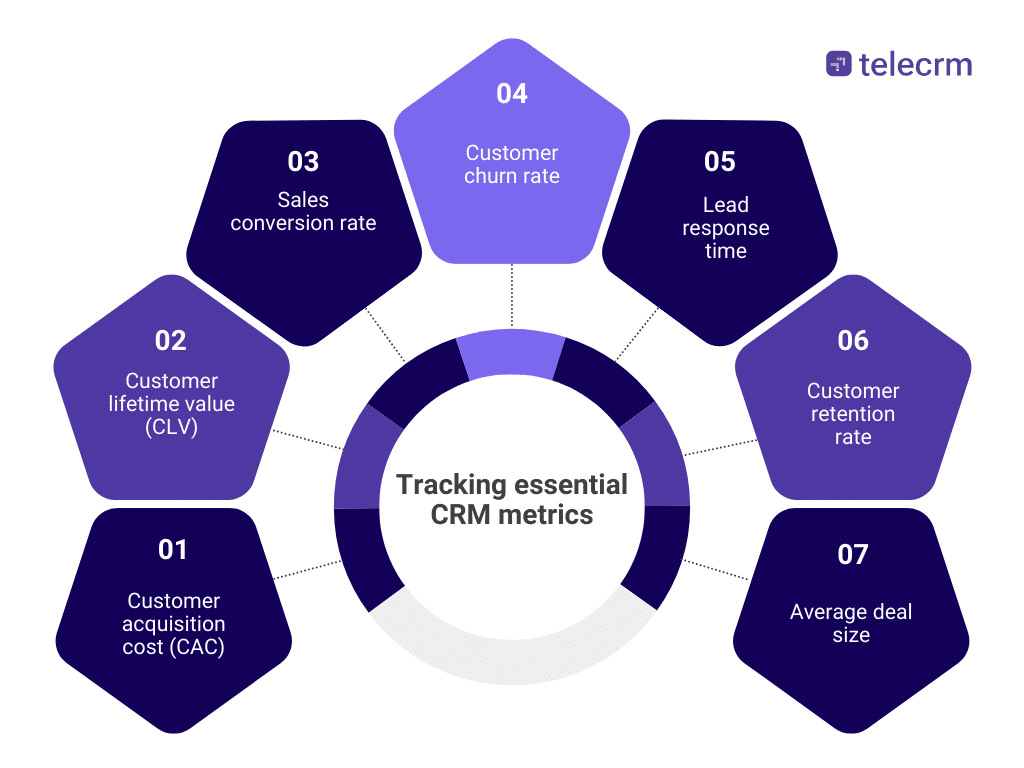
If you’re a real estate agent, you know that keeping track of clients, leads, and transactions is key to success.
But as your business grows, it can get harder to stay organized and ensure that you’re providing the best service possible.
It is all because of the real estate CRM system. It’s like a digital assistant that helps you track your customers and important metrics, so you can work smarter, not harder.
In this post, we’ll explore how a Real Estate CRM tool helps you stay organized, track your customers, and measure the success of your efforts with key metrics.
One of the biggest benefits of using a CRM for real estate agents is that it tracks everything about your customers, which means you can easily manage relationships and provide better service. Here’s how it works:
A Real Estate CRM stores detailed customer profiles that include everything you need to know, such as:
A CRM doesn’t just store information — it also helps you keep track of your interactions with each client. It logs:
A free CRM tool can also help you capture and manage leads from various sources. Whether a client comes from your website, social media, or word of mouth, the CRM will keep track of where the lead came from and how to best follow up.
For example, if someone inquires about a listing on your website, the CRM can automatically create a new lead, assign it to you, and even send an automated follow-up email to start the conversation. This way, no lead slips through the cracks
Metrics are essential to understanding how well your business is performing. A real estate agent CRM helps you track key metrics and gives you insights into where you can improve. Here are some important metrics a CRM can track:
One of the most important metrics is your lead conversion rate — the percentage of leads that turn into actual clients.
Your CRM can track how many leads you’ve generated, how many you’ve followed up with, and how many have turned into active buyers or sellers.
Tracking your conversion rate helps you see what’s working and where you might need to adjust your marketing or sales approach.
Your response time is how quickly you follow up with leads or clients after an inquiry. A CRM can show you how long it takes, on average, for you to respond to a new lead. The faster you respond, the better your chances of converting that lead into a client.
This metric is especially important in the real estate industry where speed can make a huge difference in securing a sale or closing a deal.
A good CRM software helps you track how many clients return to you for repeat business. If your client retention rate is high, it means you’re building strong relationships and clients are happy with your service. This metric helps you gauge how successful your long-term client relationships are.
A CRM also lets you track the progress of each sale in your sales pipeline. From the initial inquiry to closing the deal, a CRM can help you monitor where each client stands.
This is a great way to prioritize your efforts and ensure you’re focusing on clients who are closest to making a decision.
Your sales pipeline will typically include stages like:
Many CRMs have built-in marketing tools to track how successful your campaigns are. You can see:
– Which emails are getting opened and clicked on
– Which listings are getting the most views
– What type of ads or promotions are bringing in the most leads
So, are you starting or looking to grow your business? NOVA helps you stay organized, save time, and make smarter decisions.
If you haven’t already, consider using a NOVA Real Estate CRM — it could make all the difference in your business success.
Yes, a CRM tracks your sales progress by showing where each client is in the buying or selling process.
A CRM tracks metrics like lead conversion rates, response times, sales pipeline stages, and client retention.
A CRM tracks the success of your marketing campaigns by showing which emails or ads are generating the most leads.